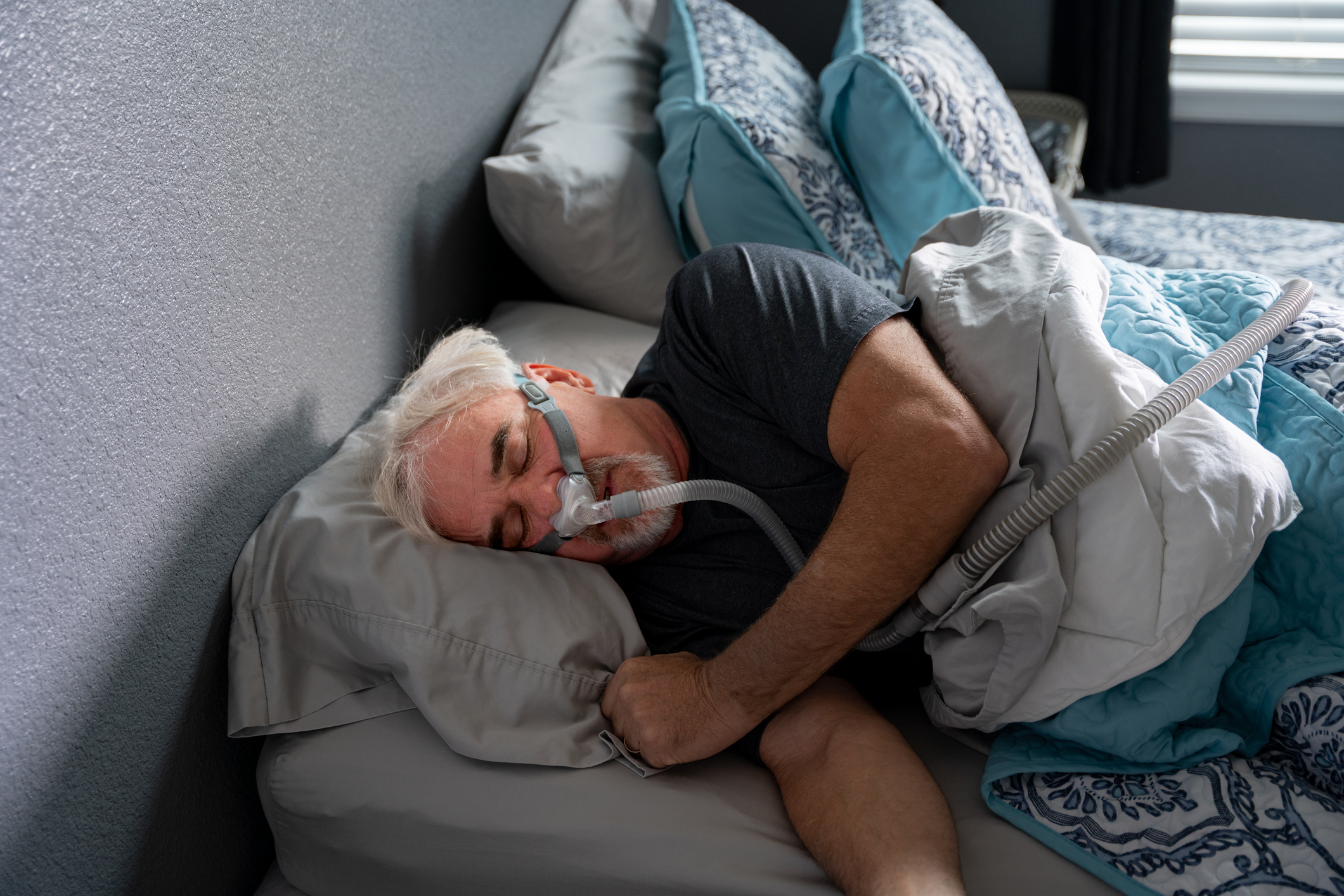Breathe easier: Explore treatments for sleep apnea
By Jay Nachman
Sleep is essential for good health. But for people with sleep apnea, restful nights can feel elusive. Sleep apnea is a serious sleep disorder where breathing repeatedly stops and starts, according to the Mayo Clinic. It affects men seven times more often than premenopausal women, but postmenopausal women are diagnosed at the same rate as men.
This shift happens because, after menopause, the hormones that help keep the upper airway open decrease, explains Dr. Robert Satriale, a sleep specialist at Temple University Hospital and director of Temple Lung Center in Oaks, Pa.
Other factors, such as weight, can also increase the likelihood of sleep apnea. Extra weight around the upper airway makes an already small airway even smaller. Losing weight can often help reduce symptoms.
The effects of sleep apnea
When we sleep, muscles in the airway work to keep it open with every breath. However, as Dr. Satriale explains, “As we get older, the responsiveness to the normal stimuli that causes the muscles to pull the airway open becomes less and less.”
When the airway narrows or collapses, the brain senses that the body isn’t getting enough air. It then signals the chest muscles to work harder, but this effort often causes the airway to close completely. When this happens, the brain wakes the body up just enough to reopen the airway.
This sleep-wake cycle repeats throughout the night, interrupting sleep so briefly that people don’t remember it. Yet the effects are clear: grogginess, daytime tiredness, reduced focus and memory issues.
There are other cognitive functions that tend to suffer from poor sleep due to sleep apnea,” Dr. Satriale says. Over time, sleep apnea can lead to more serious health issues, including high blood pressure, heart attacks, strokes and atrial fibrillation (irregular heartbeat).
Treatment options
The good news is that sleep apnea is treatable, with several options tailored to different needs and preferences:
- CPAP (Continuous Positive Airway Pressure) Machines: CPAP machines are the first line of treatment and the most effective option. They help the muscles keep the airway open, but symptoms can return if the machine isn’t used consistently.
- Oral appliances: These mouthguards push the lower jaw forward to open the airway and tighten throat muscles. They’re a good alternative for people who have trouble using CPAP machines.
- BiPAP (Bilevel Positive Airway Pressure) machines: These provide a lower, more comfortable air pressure than CPAP machines, making them a better fit for some individuals.
- Tongue task training: Exercises to strengthen tongue muscles can reduce sleep apnea episodes by up to 60%.
- Surgical options: In severe cases, an implantable device can help keep the airway open. “This works very well in severe cases of sleep apnea,” Dr. Satriale notes.
Better sleep, better life
Addressing sleep apnea can have a profound impact on overall health and well-being, particularly for older adults. “Treating older adults (who have sleep apnea) can improve their function and help them live a better quality of life,” Dr. Satriale says.
If you or a loved one experiences symptoms of persistent snoring, grogginess or difficulty concentrating, talk to a health care professional. With the right treatment, you can take control of sleep apnea and enjoy more restful nights — and brighter days ahead.
At-home sleep study available
Temple University Hospital offers select patients the option of a home sleep study to diagnose sleep disorders. To learn more about home sleep studies or to enroll in one, call 1-866-449-3677. Sleep studies are offered at the Temple Lung Center in North Philadelphia and at the Temple Lung Center at Jeanes Campus in Northeast Philadelphia. Home sleep tests are covered by Medicare and most major insurance plans, if prescribed by your doctor for sleep apnea. Home sleep tests may be covered by insurance for other diagnoses.
Jay Nachman is a freelance writer in Philadelphia who tells stories for a variety of clients.




